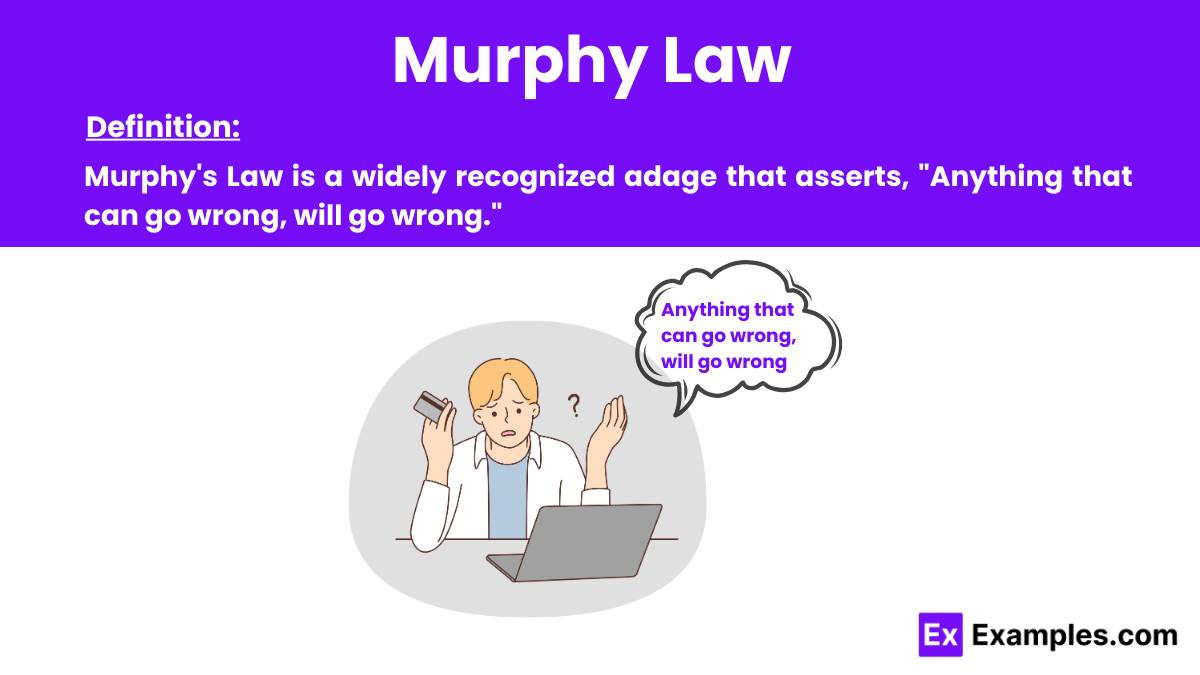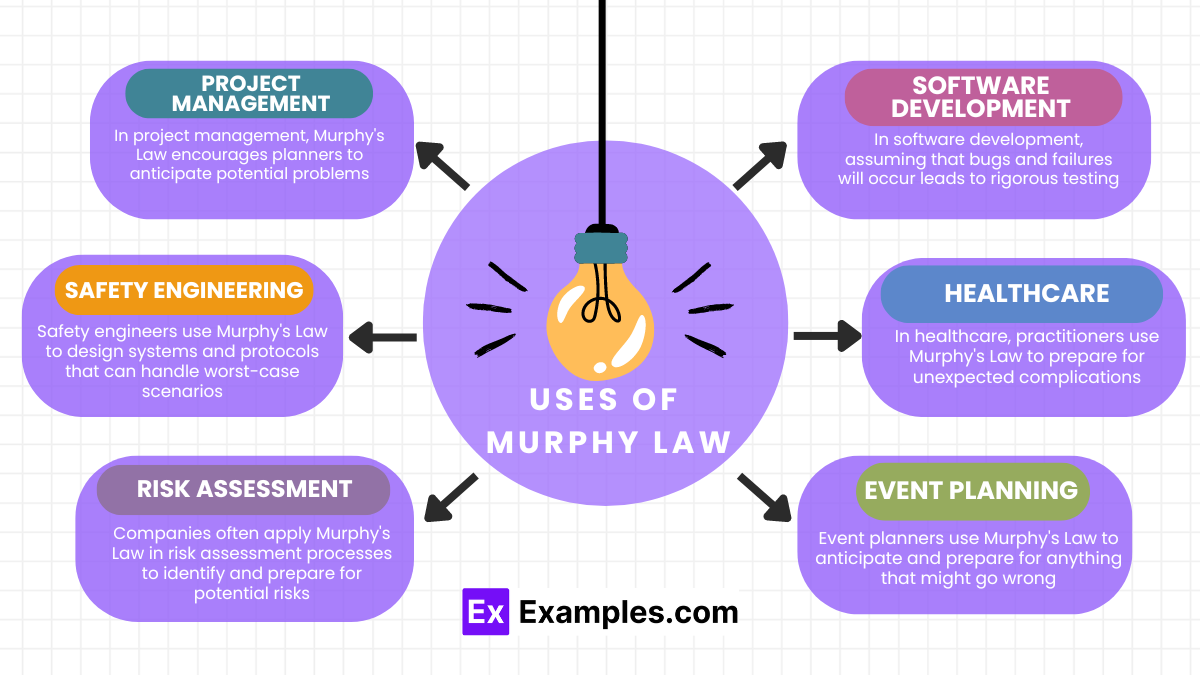What is the essence of Murphy's Law?
If something can go wrong, it will
Things will always go right
If you plan for success, you will achieve it
Nothing ever goes wrong


Murphy’s Law, while not a formal law in the field of physics like Newton’s or Fourier’s laws, carries a significant cultural and practical implication in engineering, science, and everyday life. The law is often stated as: “Anything that can go wrong, will go wrong.”
This law isn’t a scientific law in the traditional sense, like those governing forces or energy in physics. Instead, Murphy’s Law operates more as a cautionary principle. Often cited in engineering and design to underscore the necessity of accounting for all possible errors during planning and execution phases.
Despite its somewhat pessimistic outlook, the law emphasizes caution and comprehensive planning.

Murphy’s Law, “Anything that can go wrong, will go wrong,” is not just a saying but a useful principle in various professional and everyday settings. Here are several ways this law is applied:
Murphy’s Law predicts that if something can go wrong, it will, emphasizing caution and thorough planning in all activities.
Murphy’s Law is not scientifically proven; it’s more of a cultural adage reflecting inevitable human error.
Murphy’s Law was named after Edward A. Murphy, Jr., an American aerospace engineer, who remarked on a colleague’s error in 1949.
Yes, the opposite is Yhprum’s Law, which states that “Anything that can go right, will go right” when conditions are favorable.
Text prompt
Add Tone
10 Examples of Public speaking
20 Examples of Gas lighting
What is the essence of Murphy's Law?
If something can go wrong, it will
Things will always go right
If you plan for success, you will achieve it
Nothing ever goes wrong
How does Murphy's Law relate to project management?
It assumes everything will proceed without problems
It encourages planning for potential issues
It guarantees project success
It suggests that planning is unnecessary
Which of the following best exemplifies Murphy's Law in a technical context?
A computer system always runs smoothly
A software bug appears after a system update
Equipment functions perfectly in all conditions
A machine operates without maintenance
In a scenario where multiple things can go wrong, what does Murphy's Law predict?
Only one issue will occur
All potential issues will manifest
No issues will occur
Some issues will occur randomly
How might Murphy's Law influence troubleshooting practices?
It suggests ignoring minor issues
It leads to thorough examination of potential problems
It implies problems are always rare
It assumes that once fixed, problems won’t reoccur
Which situation is an example of Murphy's Law in daily life?
The weather is always as forecasted
A car starts on the first try
The phone battery dies just when you need it most
A meal is prepared exactly as planned
How can understanding Murphy's Law be beneficial in risk management?
It discourages taking any risks
It helps in identifying and mitigating potential risks
It ensures all risks will be eliminated
It implies risks are not worth managing
What does Murphy's Law suggest about the reliability of complex systems?
Reliability improves with complexity
Complex systems are always reliable
Complex systems never fail
Complex systems are prone to unexpected failures
Which approach does Murphy's Law support in event planning?
Planning for all possible problems
Relying solely on ideal scenarios
Ignoring potential risks
Assuming everything will go perfectly
In engineering, how does Murphy's Law affect design?
It encourages ignoring safety features
It assumes all designs will function without issues
It suggests that designs will always be error-free
It promotes designing for worst-case scenarios
Before you leave, take our quick quiz to enhance your learning!

